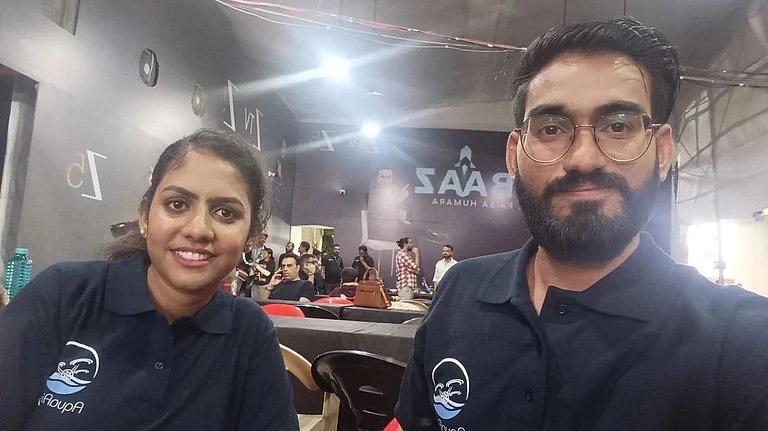At a time when VC firms are being urged to back more deeptech startups, consumer internet company Info Edge has already placed its bets, 18 of them to be precise across frontier domains such as spacetech, drug discovery, robotics, and mental health.
Taking to X, Info Edge founder Sanjeev Bikhchandani raised an important question: how can India fund more deep tech companies? “It is going to consume a lot of capital,” he said, adding that even if costs in India are 80% lower, building something on the scale of OpenAI would still require around $12 billion, an expensive undertaking by any measure.
Info Edge, an Indian technology holding company, owns, operates, and invests in internet-led businesses. The firm has long been known for its early bets on now-household names. As of September 2020, it held minority stakes in 23 online companies, including two unicorns—the food delivery company Zomato (15.23% stake, as of July 2021) and the insurance aggregator Policybazaar (13.3% stake, as of November 2021).
“Deep tech is essentially about building companies from scientific research and laboratory breakthroughs. If you need a PhD to understand it, it probably qualifies,” says the team behind Info Edge’s deep tech thesis.
Their approach focuses on ventures built on proprietary R&D, with long gestation periods and high impact potential, often operating at the bleeding edge of innovation.
The firm’s current deep tech portfolio reflects this broad spectrum of innovation. Matter Motors is building battery technology and geared electric motorbikes, while Pantherun works on encryption solutions across hardware and software. Leumasware focuses on on-demand manufacturing, and Manastu Space is developing propulsion systems for in-space applications. In healthcare, Ahammune BioSciences is working on drug candidates for autoimmune disorders, and Marbles Health is creating solutions for mental health and depression. BrainSight AI applies artificial intelligence to interpret brain MRIs, while ePlaneCo is building electric flying taxis.
In the robotics space, Unbox Robotics is automating e-commerce warehouses, and CynLr is building a vision stack for industrial robotics. StringBio, operating at the intersection of biotechnology and sustainability, is developing alternative proteins and bio-stimulants for agriculture. RaylOT is innovating in the area of non-invasive breath monitoring, while Skyserve AI enables edge computing for geospatial data analysis. Aarogya AI is using genomics to identify drug-resistance in tuberculosis patients. In drone technology, Skylark Drones is working on survey and analytics platforms.
On the data and analytics front, Lumiq AI is developing storage and analysis tools tailored for the banking, financial services and insurance sector, while Attentive AI provides geospatial intelligence for various applications. Rounding off the list, NexStem is developing brain-computer interface technologies aimed at creating seamless interaction between humans and machines.
According to sources, the three pillars of deep tech are clear: it’s born from IP and research, it takes significant time to mature, and its very definition evolves with scientific progress. While the upside can be transformative as seen in global success stories like Tesla, Moderna, and Impossible Foods the path to commercialization is often slow and fraught with uncertainty.
One of the biggest challenges facing deep tech in India is the mismatch between funding timelines and the time it takes for such companies to prove their technology, find product-market fit, and reach profitability. Venture capital funds, constrained by finite lifecycles and pressure for timely exits, often find it difficult to sustain investments over a decade or more. This creates a funding vacuum beyond the seed stage, especially when companies move to Series A, B, or C rounds.
Moreover, many deep tech founders are technologists first and may lack the commercial acumen to scale their innovations. Building teams that combine scientific brilliance with business savvy remains a challenge.
Despite these hurdles, Info Edge remains committed to supporting deep tech from its balance sheet. “We invested in Zomato in 2010 and Policybazaar in 2008. Both required long-term vision and conviction. Deep tech is no different,” the team notes.
As the government continues to push science and tech advancement through policy and infrastructure support, private capital will play a critical role in bridging the gap between national priorities and commercial viability.
































